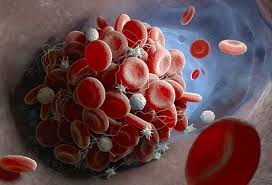However, in an interview with Italian newspaper il Messaggero, Cavaleri gave no indication that the EU regulator will at this stage change its recommendation that people continue to get vaccinated.
The EMA has so far maintained that the benefits of the AstraZeneca COVID-19 vaccine in protecting against the coronavirus outweigh any risks.
“We can now say, it is clear that there is a link with the vaccine,” Cavaleri said in the interview. “What causes this reaction, however, we do not know yet,” he said, adding the agency would announce this in a few hours.
Asked if the risk-benefit ratio was still in favor of the vaccine, Cavaleri replied, “Yes.”
Nigeria is currently vaccinating the populace with the AstraZeneca vaccine, delivered March 2 via the COVAX Facility, a partnership between CEPI, Gavi, UNICEF and WHO. COVAX shipped 3.94 million doses of the AstraZeneca/Oxford vaccine, manufactured by the Serum Institute of India, from Mumbai to Abuja.
But beyond vaccine-induced blood clots, researchers warn that certain lifestyle factors can increase your chances of blood clots. For example, being inactive or immobile for long periods of time ― like during a long flight or while on bed rest ― can be a contributor. Smoking and obesity can also increase your risk.
Medications like birth control and some HIV treatments list blood clots as a potential side effect. Conditions like autoimmune disorders, pregnancy and cancer have also been associated with clotting, according to the American Heart Association.
There are several different variations of blood clots, each with its own set of concerns and options for treatment, doctors say. “They can form for a number of reasons, including medication, lifestyle factors and other health conditions, and they can occur in different parts of the body,” physicians say.
Disease specialists also warn that blood clots can cause severe harm or be fatal if left unaddressed, and that they can originate in the veins or arteries.
According to Huffpost, there are two main types of blood clots to be aware of, and each can lead to its own set of potential complications. One type is called a thrombus, which is a stationary clot. These block blood flow in the part of the body where the clot occurs.
Another type, called an embolus, is a blood clot that can break loose. These are particularly dangerous because they can travel to other parts of the body ― like the heart or the lungs ― and cause severe damage.
The symptoms of blood clots vary, depending on the type. When the clot is stationary, like deep vein thrombosis (a clot in the leg), you may experience:
- Warmth and redness where the clot is located ― typically in the leg or the arm
- Swelling
- Pain near the site of the clot
- Numbness or weakness
- A change in your mental state
If the clot has traveled, leading to complications like a pulmonary embolism (a clot that has moved to the lungs), you may experience symptoms including:
- Sudden shortness of breath
- A cough, with or without blood
- Clammy, pale or blue skin
- Excessive sweating
- Anxiety
- Weakness
- Nausea or vomiting
As for the symptoms of vaccine-induced clotting, symptoms include
- Severe gut pain commencing four to 20 days after receiving the vaccine
- A persistent headache unresponsive to paracetamol
- A general feeling of systemic unwellness beyond four days after the vaccination
- Stroke-like symptoms, seizures or vomiting
This is even as stroke-like symptoms, also known as a transient ischaemic attack, could feel like:
- Dizziness
- Transient loss of speech or balance
- Weakness on one side of the body
- Confusion
- Blurred vision
Blood clots can affect the arms, legs, heart, lungs, kidneys and brain, depending on where they form and where they travel in the bloodstream.
A handful of people who received the Johnson & Johnson vaccine developed complications from a clot originating in the veins near the brain, called cerebral venous sinus thrombosis, or CVST.
This issue is seen in combination with low levels of blood platelets.
A few people who received the AstraZeneca vaccine also experienced clots caused by the same issue.
Symptoms associated with this type of clot complication include severe headache, abdominal pain, leg pain or shortness of breath within three weeks after vaccination, according to the Centres for Disease Control and Prevention and the Food and Drug Administration.
Experts, however, warn that the fear of blood clots should not prevent anyone from taking COVID-19 on offer in respective countries.
“Just remember that COVID-19 causes blood clots. And COVID-19 causes blood clots at a higher rate than the vaccine does,” infectious disease expert Amesh Adalja warned.
Experts say that the vaccine could be a game changer for the pandemic, and a principal reason for the pause in distribution is to inform health care providers how to spot, treat and report the issue.
Don’t let this deter you from getting any vaccination against the coronavirus. Just pay attention to the warning signs of blood clots and seek help right away.
source: Punch

 Reports of people developing blood clot after receiving certain brands of COVID-19 vaccines has continued to make the headlines. So far, some people had developed blood clots after receiving the AstraZeneca and Johnson & Johnson COVID-19 vaccines, leading to the suspension or limiting use of AstraZeneca vaccine in many countries.
Reports of people developing blood clot after receiving certain brands of COVID-19 vaccines has continued to make the headlines. So far, some people had developed blood clots after receiving the AstraZeneca and Johnson & Johnson COVID-19 vaccines, leading to the suspension or limiting use of AstraZeneca vaccine in many countries.




